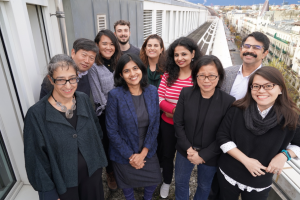Basile ZIMMERMANN, Amalia SABIESCU and Yan ZHANG
On July 30th, 2020, the Confucius Institute at the University of Geneva co-organised a thematic workshop at the World Summit on the Information Society (WSIS) Forum, titled “To Choose is To Renounce. How is cultural diversity taken into account in ICT design and implementation?”. The Institute has had a research agenda centered on the study of mundane technological tools in China for several years. This meeting aimed to explore possibilities to further develop existing activities with new collaborations and new directions.
Continuer la lecture
